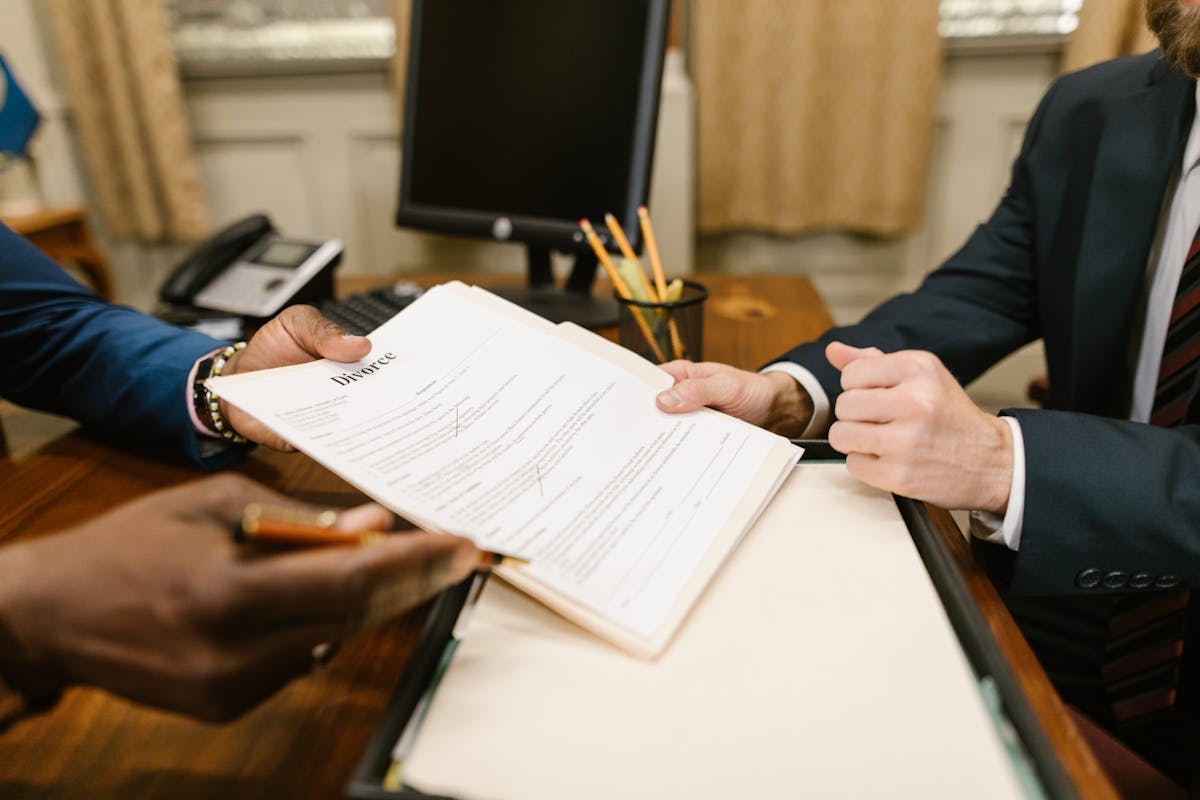
Divorce is one of those experiences that nobody really prepares for—it’s often messy, emotionally draining, and full of legal hoops to jump through. One of the first and arguably most important tasks is serving your spouse with divorce papers. This step, called “service of process,” isn’t just another item on your to-do list—it’s a critical legal requirement that has to be done before your case can even begin to move forward.
If you’re in California, hiring a professional process server is one of the most reliable ways to make sure this step gets done the right way. Process serving in California doesn’t just involve delivering the papers; it also ensures everything is done by the book, on time, and in accordance with California law.
Let’s take a closer look at why this step matters so much and how hiring a process server can make your life easier.
Why Hiring a Process Server for Divorce Papers Is Essential
Let’s face it—divorce is never easy. Whether it’s the legal battles, the emotional toll, or just trying to get through the logistics, there’s a lot to handle. Even something that seems as straightforward as serving papers can become a daunting task.
That’s where hiring a professional process server can be a game-changer. These professionals handle the logistical and legal challenges of serving divorce papers so you can focus on the bigger picture—like moving forward with your life or taking care of yourself emotionally.
But why not just do it yourself? It’s a fair question, and the answer boils down to two key issues: legal requirements and emotional dynamics.
Benefits of Hiring a Professional Process Server
Ensures Legal Compliance
In California, serving divorce papers involves more than simply handing over an envelope; it requires adherence to strict legal rules regarding who can serve the documents and the proper timing and location for delivery.
Any misstep in this process could jeopardize your case, potentially leading to setbacks or even dismissal. That’s where process servers come in.
These professionals are well-versed in the necessary deadlines, forms, and nuances of the law, ensuring that all aspects of service are handled correctly.
Even minor mistakes, such as delivering the papers to the wrong person or failing to meet a deadline, can result in significant delays or complications.
Acts as a Neutral Third Party
Divorce can bring out the worst in people. Serving papers yourself—or having a friend or family member do it—can add fuel to the fire. Emotions can run high, and the situation could easily escalate into a confrontation.
A process server eliminates this risk. They approach the task with professionalism and neutrality, which can help keep things calm. Their presence can also diffuse any potential tension, making the process smoother for everyone involved.
Provides Proof of Service
One of the most important parts of serving divorce papers is getting a legally valid Proof of Service. This document verifies that the papers were served properly and on time, which is essential for your case to proceed.
Without it, you could face delays or even legal challenges from your spouse. Process servers know exactly how to complete and file this critical paperwork, ensuring that everything is in order.
Brings Efficiency and Expertise
Not everyone is eager to receive divorce papers, and some people go out of their way to avoid it. Process servers are skilled at tracking down individuals who don’t want to be found.
They use tools like skip tracing (a method of locating people through public records, social media, and other resources) to track down hard-to-find spouses. Their expertise also helps them handle tricky situations with tact and professionalism, ensuring the job gets done as quickly and efficiently as possible.
Reduces Risks
Serving papers yourself isn’t just stressful—it can also be risky. On the emotional side, serving papers personally can lead to awkward, tense, or even hostile interactions—especially if things between you and your spouse are already strained.
You might accidentally break a legal rule you didn’t know about or find yourself in an uncomfortable or even unsafe situation.
A professional process server minimizes these risks by taking care of everything for you. They’re trained to handle the process properly and safely so you can avoid unnecessary stress and focus on what’s most important.
How Process Servers Handle Tough Situations

Here’s an example of how process servers can make a difference: Your spouse has been avoiding you by changing addresses, rarely being home, and outright refusing to cooperate. What can you do?
This is where process servers shine. They use skip tracing and other investigative methods to locate individuals who don’t want to be found. For instance, in one case, a process server tracked down a spouse who had been evading service for months.
By piecing together information from public records, online activity, and other sources, the process server was able to locate the individual and deliver the papers. This kind of persistence and expertise can be critical when dealing with a difficult or uncooperative spouse.
Who Can Serve Divorce Papers, and Why Choose a Professional?
In California, anyone over the age of 18 who isn’t directly involved in the case can legally serve divorce papers. While you technically can ask a friend or family member to do it, that doesn’t necessarily mean you should.
For one, the person serving the papers needs to understand the legal requirements involved fully. If they make a mistake—like serving the papers incorrectly or failing to document the delivery properly—it could jeopardize your case.
Additionally, asking someone close to you to handle this task could strain relationships or add unnecessary drama to an already emotional situation.
Serving divorce papers involves a structured process that ensures legal compliance and accuracy. Here’s a consolidated overview of how a professional process server handles the task:
- Getting the Assignment and Filing the Papers
The process begins with the server receiving all necessary documents, such as the divorce petition and summons. Before serving, these papers must be filed with the court, and a stamped copy must be prepared for delivery to the recipient. It’s essential to maintain a copy for your records. - Confirming the Location and Locating the Recipient
The server verifies the recipient’s address using public records and investigative techniques, especially if the individual is difficult to locate. This step is crucial for ensuring that the papers are delivered to the correct person. - Planning How to Serve and Choosing a Method of Service
After confirming the recipient’s location, the server strategizes the delivery method. Options include personal delivery, mail, or, in rare cases, publication in a newspaper. Personal delivery is the most prevalent and dependable method. - Making the First Attempt and Delivering the Papers
The server attempts to deliver the papers in person, ensuring they are received and understood. California law permits the server to leave documents nearby if the recipient refuses to accept them, ensuring valid service. - Documenting the Service and Filing Proof of Service
Once the papers are delivered, the server completes a Proof of Service form, documenting the details of the delivery. This form is then filed with the court to verify that the papers were served correctly and on time. - Reporting Back to the Client
Finally, the process server informs the client or their lawyer that the delivery was completed, providing all necessary documentation to confirm proper service. - This structured approach minimizes risks and ensures compliance with legal requirements throughout the process.
Does It Matter Who Serves Divorce Papers First?

From a legal standpoint, it is irrelevant who serves the papers first. California law doesn’t favor one party over the other based on who initiates the process. That said, there are some strategic reasons why you might want to be the one to serve first.
For example, filing first gives you control over the timeline. You’ll have more time to prepare your case and gather any necessary documentation. Filing first can also give you a psychological edge in negotiations, as it shows that you’re taking the initiative to move forward.
Still, no matter who serves first, the most important thing is ensuring the papers are served correctly. Mistakes can lead to delays, so it’s always a good idea to hire a professional.
Steps to Take If Your Spouse Rejects Divorce Papers
It’s not uncommon for spouses to refuse service. Some might be in denial about the divorce, while others might try to stall the process. Fortunately, professional process servers have ways to handle these situations, including:
- Substituted Service: Delivering the papers to another adult at your spouse’s home or workplace. This is often used when the intended recipient is avoiding direct contact. It ensures that legal documents are still delivered in a manner that fulfills the requirements of the law.
- Posting and Mailing: Leaving the papers at your spouse’s residence and following up with a mailed copy. When using this method, it’s important to ensure that the documents are clearly labeled and organized for easy reference. Additionally, consider confirming receipt of the mailed copy to avoid any potential misunderstandings.
- Court-Approved Methods: As a last resort, the court may allow service by publication in a local newspaper. Court-approved methods ensure that all parties have a fair chance to respond. This approach is particularly useful when the whereabouts of a party are unknown, maintaining the integrity of the legal process.
Common Pitfalls to Steer Clear of When Delivering Divorce Papers
Even small mistakes when serving divorce papers can cause delays or legal issues. Here’s a quick list of common errors and how to avoid them:
- Trying to Serve Papers Yourself Without Knowing the Rules
It might seem easier or cheaper to handle this yourself or ask a friend for help. But California has strict legal standards for serving papers, and mistakes here can invalidate the whole process. Using a professional process server who is well-versed in the rules is the most effective approach. - Using an Outdated Address
If the recipient has moved or is actively avoiding being served, using an old address can waste time. Professional process servers have tools to track people down—even those trying to hide. - Skipping Proper Documentation
The courts require Proof of Service to show the papers were delivered correctly. Forgetting this step means you might have to start the whole process over again. Not ideal! - Missing Deadlines
There are strict deadlines for serving divorce papers in California. Missing one of these deadlines can set your case back significantly, so time is of the essence. - Handling the Service Poorly
Serving papers in an overly public or confrontational way can create unnecessary drama. A professional server knows how to handle the situation with discretion and care to avoid escalating tensions. - Not Hiring a Professional Process Server
Attempting to cut costs by avoiding the hiring of a professional can frequently lead to unintended consequences. Licensed process servers are trained to follow legal standards, avoid costly mistakes, and get the job done right the first time.
Why Consult Legal Professionals
Navigating the legal process of serving divorce papers can be overwhelming, especially when emotions are running high.
Consulting with legal professionals—like attorneys and process servers—can help ensure that the process is handled smoothly and efficiently, giving you one less thing to worry about. Legal consultation in California is essential for navigating the complexities of the legal system.
Whether it’s navigating strict legal requirements or avoiding emotional conflicts, process servers play an essential role in making the process smoother.







